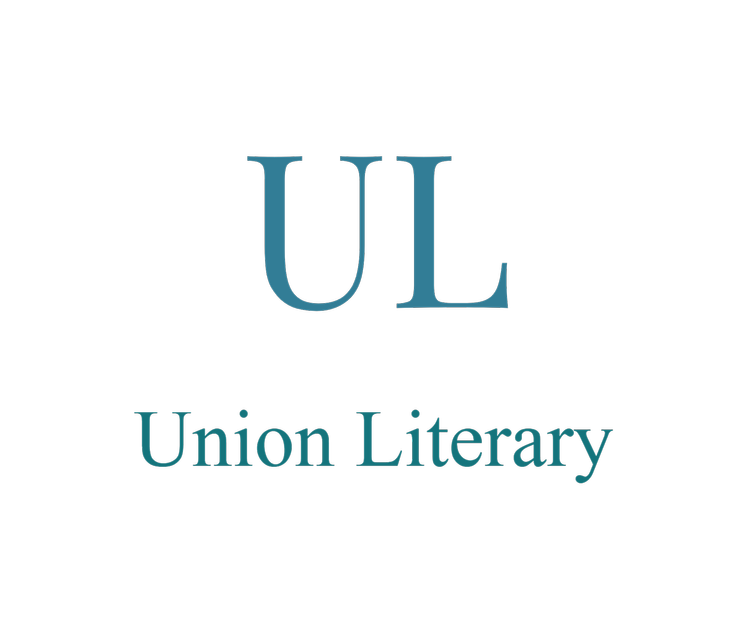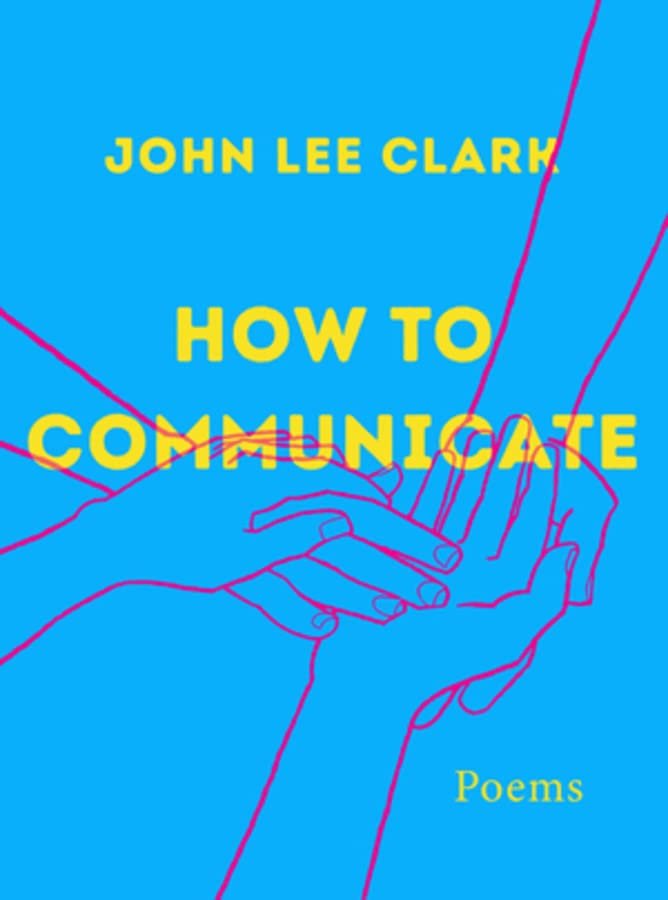John Lee Clark
John Lee Clark is a DeafBlind poet, essayist, and independent scholar from Minnesota. Clark was a featured writer at the Deaf Way II International Cultural Arts Festival and has won grants and fellowships from the Minnesota State Arts Board, VSA Minnesota, the Laurent Clerc Cultural Fund, Intermedia Arts Center, and The Loft Literary Center. He was a finalist for the 2016 Split This Rock Freedom Plow Award for Poetry and Activism. His work is included in the anthologies Beauty Is a Verb: The New Poetry of Disability, Deaf American Prose, St. Paul Almanac, and The Nodin Anthology of Poetry.
Clark is a finalist for the National Book Award for his poetry collection, How to Communicate.
Clark lives in Hopkins, Minnesota with his wife, the artist Adrean Clark, and their three boys. He works for the Minnesota Department of Employment and Economic Development as a Braille and Protactile instructor. Visit his website here.
TOUCH THE FUTURE: A Manifesto In Essays (October 2023)
Born Deaf into an ASL-speaking family and blind by adolescence, John Lee Clark learned to embrace his tactile world. He champions the Protactile movement, an unprecedented way of life based on physical connection. In his paradigm-shifting essays, Clark shares seismic developments within the DeafBlind community and challenges sighted and hearing norms. In “Against Access,” he interrogates advocacy for “accessibility” that re-creates a shadow of the hearing-sighted experience, in “Tactile Art,” he describes breathtaking encounters with tactile sculpture. He offers a history of the term “DeafBlind,” distills societal discrimination against DeafBlind people into “Distantism,” sheds light on the riches of online community, and advocates for “Co-Navigation,” an emergent way of exploring the world without a traditional guide.
Touch the Future brims with passion, humor, and imagination as Clark takes us by the hand and welcomes us into the exciting landscape of Protactile communication. A distinct language of taps, signs, and reciprocal contact, Protactile emerged from the inadequacies of ASL—a visual language even when pressed into someone’s hand—with the power to upend centuries of DeafBlind isolation. Equally warm and witty, Clark encourages us to reject stigma, redefine disability, access, and language, and discover the ways we are inextricably connected.
John Lee Clark’s fervent manifesto for the Protactile language and movement will blow your mind, enliven your body, and connect you to other people in unexpected ways. Touch the Future is a book that enlarges the human world.” —Edward Hirsch, author of Stranger by Night
John Lee Clark’s essays radiate with excitement and urgency. Tenderly documenting the emerging social movement of Protactile, they call upon us all to think about distance, power, and access in much bolder ways. To read Clark is not simply to be taught something by him, but to find yourself immersed and seeking alongside him—you don’t just learn, you come away changed.” —Katie Booth, author of The Invention of Miracles
“Touch the Future opens doors to the multiple worlds of disability…This is a book for anyone who is interested in the life of the imagination and the mind.” —Stephen Kuusisto, author of Eavesdropping
HOW TO COMMUNICATE (2022)
A stunning debut from an award-winning DeafBlind poet, “How to Communicate is a masterpiece” —Kaveh Akbar, author of Calling a Wolf a Wolf
Formally restless and relentlessly instructive, How to Communicate is a dynamic journey through language, community, and the unfolding of an identity. Poet John Lee Clark pivots from inventive forms inspired by the Braille slate to sensuous prose poems to incisive erasures that find new narratives in nineteenth-century poetry. Calling out the limitations of the literary canon, Clark includes pathbreaking translations from American Sign Language and Protactile, a language built on touch.
How to Communicate embraces new linguistic possibilities that emanate from Clark’s unique perspective and his connection to an expanding, inclusive activist community. Amid the astonishing task of constructing a new canon, the poet reveals a radically commonplace life. He explores grief and the vagaries of family, celebrates the small delights of knitting and visiting a museum, and, once, encounters a ghost in a gas station. Counteracting the assumptions of the sighted and hearing world with humor and grace, Clark finds beauty in the revelations of communicating through touch: “All things living and dead cry out to me / when I touch them.”
A rare work of transformation and necessary discovery, How to Communicate is a brilliant debut that insists on the power of poetry.
Winner of the 2023 Minnesota Book Award for Poetry
Finalist for the National Book Award for poetry.
"How to Communicate brims with the talent and generosity of a living classic. And what a talent! Take, for instance, Slateku, a form John Lee Clark has created based on Braille: it is both inimitable and available to anyone. Or take his brilliant prose poems that are completely unlike any other prose poems I have read.… There is simply no one else like John Lee Clark and I envy the readers who discover him for the first time." ― Ilya Kaminsky, author of Deaf Republic
"The poems in John Lee Clark’s revolutionary How to Communicate work together as a manifesto that lays bare the ways in which a society that assumes seeing and hearing as the norm views touch as suspicious, enough so to try to outlaw touch. And yet, if manifesto, also invitation: what might it mean to write ‘forward in a different direction and from a different spatial perspective,’ Clark asks, and goes on to show us, in poems of formal virtuosity, of fierce tenderness, of triumphant community.… How to Communicate is the steadily revelatory gift I didn’t know I’d been waiting for." ― Carl Phillips, author of Then the War
"A rare and gorgeous collection powered by human touch. John Lee Clark’s poems approach, feel, and detail what we thought we recognized―a tree, an airplane, and even Goldilocks―on their way to challenging and enlarging our understanding of agency, community, and, most of all, language itself. How to Communicate is a vital and precious bridge made of language―and once crossed, it will transform readers’ sense of the world.” ― Aviya Kushner, author of Wolf Lamb Bomb


